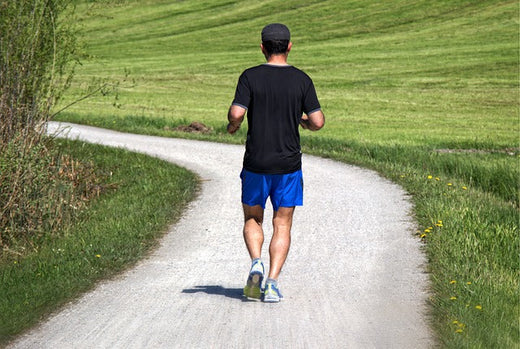As founders, we constantly operate under intense pressure with no option to “change jobs.” If external investors are involved, walking away from a business becomes even more difficult. This is why prioritizing both mental and physical health is absolutely critical. I’d like to share my personal experience, which I hope will inspire and help others facing similar challenges.
At 176 cm tall, my weight exceeded 90 kg at one point, and that’s when I decided to take running seriously. I had stopped wearing wristwatches due to my reliance on my smartphone and initially used budget-friendly smartwatches from Amazon, costing around $30. However, they kept breaking within a year. After going through this cycle three or four times, I finally invested in a Garmin smartwatch—and it completely changed my life.
At 53 years old, my advice is simple: get a Garmin and set monthly running goals, starting with 100 km → 150 km → 200 km. Running not only keeps you healthy no matter how much you eat or drink, but it also naturally reduces overeating and overdrinking. You stop worrying about calorie counting or specific ingredients like flour.
While running, your body tells you what it needs—for example, cravings for tomatoes or sour foods. Not only does your body tell you what it wants to eat, but it also becomes clear what it doesn't want.
For example, I used to love potato chips and could easily finish an entire bag in one sitting. However, now if I try to eat a second bag, I feel nauseous and can’t continue. It seems that my body’s preferences—or even my taste—have changed over time.
At night, you’ll find yourself tired enough to fall into deep, restful sleep just by going to bed early. Garmin also supports you with features like sleep tracking and personalized running training plans.
For the past three years, I’ve been running 300 km per month. During this time, I haven’t caught a cold. Even if I feel a little under the weather, I recover quickly. I don’t catch illnesses from my family and feel resistant to most viruses. I haven’t felt the need for vaccines, even with seasonal flu going around. Remarkably, my chronic back pain caused by a slipped disc—once deemed untreatable by doctors—has fully healed.
Issues like pollen allergies, which trouble many people in Japan, are no longer relevant to me. However, if you’re starting, don’t aim for 200 km/month right away—begin with 50 km/month. Once you’ve maintained that for two months, gradually increase to 100 km/month.
Frequency matters more than distance per session. Running 2 km daily is better than running 10 km in one day. Around 130–150 km/month, poor running form might lead to injuries like knee or ankle pain. To improve your form, think of “running with your hips.” There are plenty of YouTube videos that can guide you. Since it’s hard to evaluate your own form, ask for advice from experienced runners. With consistent training, you’ll naturally develop good technique.
To summarize, running offers countless benefits: staying healthy, maintaining the stamina of someone in their 20s, and being able to eat and drink freely without gaining weight.
The Costs:
- Strong Willpower: Commitment is key.
- Time Investment: Approximately 20 hours per month (10 km takes around 60 minutes).
- Good Running Shoes: I recommend Nike Zoom Fly.
- A Reliable Running Watch: I personally use the Garmin ForeAthlete.
The returns? A healthier, stronger, and more confident version of yourself. If you’re a founder facing relentless pressure, this might just be the key to maintaining your edge.



